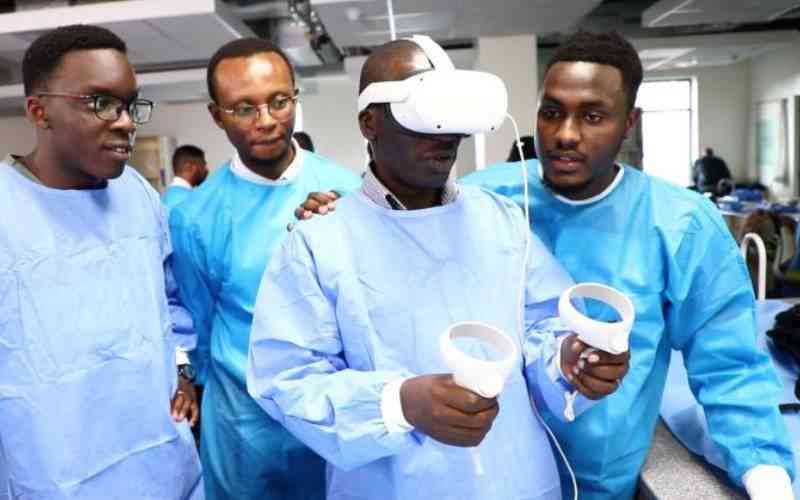
Although Virtual Reality (VR) and Augmented Reality (AR) have yet to achieve widespread adoption, there is a significant opportunity for these technologies to enhance neurosurgery.
Neurosurgery is the medical speciality concerned with the prevention, diagnosis, treatment and rehabilitation of disorders that affect the entire nervous system including the brain and the spinal cord.
Brain surgery is one of the most complicated practices and according to Dr Mogere, the field can benefit from the most acute technological developments and regular literature updates.
"Neurosurgery is unique in all healthcare. We benefit from the most demanding clinical conditions. We deal with the most complicated problems with often catastrophic outcomes when things don't go well. And also extremely rewarding when things go well.
Because of that, we benefit from the most acute technological developments. Whether it is the use of endoscopes, microscopes, or phenomena such as catheter-based treatment, the use of advanced imaging or high fidelity ultrasounds, using neuro navigation ware which is like a GPS brain map that helps us know where we are at a particular time.
This field is extremely dynamic, what was true last week is often not true this week.
This means we have to have frequent forums where we inform each other about the latest literature. The congress is one of those major events where once in a year we meet and say this is the current literature and this is what is working" said Dr Mogere.
- Artificial Intelligence to transform safety in Kenya's mining sector
- Cloud, AI adoption surge as Africa shifts from tech trials to execution
Keep Reading
Neurosurgery is a high-risk, high-stakes specialty with little margin for error. Standardising the expertise and training of neurosurgeons to ensure the highest quality of care and minimise patient safety concerns is vital for this growing global specialty.
It is this need that has accelerated the use of technology in healthcare showing the crucial role simulation will play in the improvement of procedural knowledge and technical skill.
"The UpSurgOn neurosurgeon program is a neuron-simulation program, a training program to help young neurosurgeons acquit themselves with the anatomy of the brain.
In our setting, it is difficult to get cadavers which we used traditionally but because of the cost and inaccessibility, we needed an alternative to allow students to learn the structure of the brain.
Today we cannot ignore the role of technology in science, we need to look for better ways to study the anatomy of the brain.
We teach them the hands on but we can marry that with technologies like VR headsets which supplement their learning. Before you do surgery you need to have some skills, you are not going to practice on the patient. You need to practice somewhere and that's why we have this workshop." Dr Ignatius Esene from Cameroon is the chair of the world neurosurgeons forum.
Dr Beverly Cheserem, a consultant neurosurgeon and an associate professor at Aga Khan hospital explained the value of tech, cost and the quality of professionals that could come out of this tech-savvy generation.
"Kenya is the third in Africa this year doing neuron simulation, a special project founded in Italy where rather than using cadavers, we're using augmented and virtual reality. Kenya is the leader in technology in the region, so we are able to use our smartphones and we have people using virtual reality to simulate theatre.
The value of this technology is how easy it is to set up. This is not an anatomy lab, this is a standard lab and we could have used any classroom, the modules came in a box and participants came with their own phones.
We have the most digitally savvy generation so we are learning in a way most people live daily. This is how we need to learn, particularly neurosurgery is very technology heavy if you want to perform good surgical practice.
So we teach them all the modern technologies, including neuronavigation which increases accuracy on how they practice." said Dr Beverly.
 The Standard Group Plc is a multi-media organization with investments in media
platforms spanning newspaper print
operations, television, radio broadcasting, digital and online services. The
Standard Group is recognized as a
leading multi-media house in Kenya with a key influence in matters of national
and international interest.
The Standard Group Plc is a multi-media organization with investments in media
platforms spanning newspaper print
operations, television, radio broadcasting, digital and online services. The
Standard Group is recognized as a
leading multi-media house in Kenya with a key influence in matters of national
and international interest.











